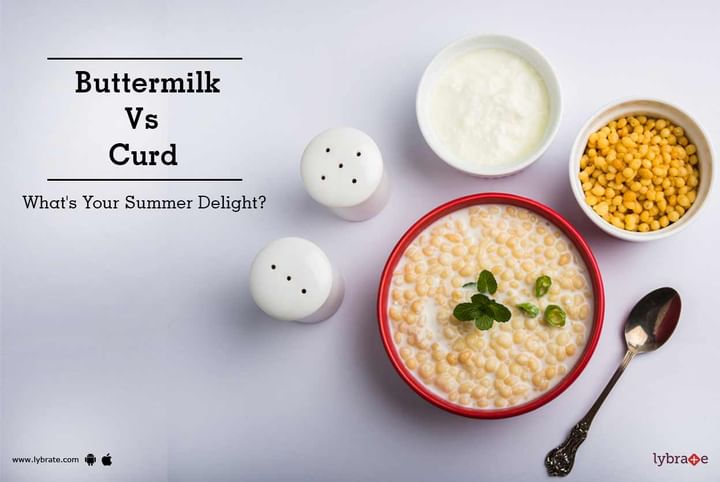Buttermilk Vs Curd - What's Your Summer Delight?
Curd and buttermilk are both milk based products, have the same composition, and more or less the same nutrients, yet there remains a persistent question as to which out of the two is better?
Does adding water to the contents of the curd, to turn it into buttermilk, really affect the properties of curd?
The answer is yes.
Read on to find out, how.
The basic difference between curd and buttermilk is the process of dilution by the addition of water. The more water you put in curd, the less concentrated the buttermilk becomes. According to Ayurveda, the churning (Manthana) of the curd into buttermilk, gives it additional properties. Churning induces the proteins in the buttermilk to be easily digested due to their degraded structure.
Here are a few pointers that could help you choose which out of the two suits your needs more:
- Calorie content - If you are looking to reduce your weight and prefer a controlled diet, you should opt for buttermilk. 100 grams of buttermilk contains 40 calories, whereas 100 grams of curd contains close to 98 calories. So, for undernourished children or people looking forward to gain weight, curd should be opted because it is nutrient dense.
- Nutrient content - Buttermilk is rich in calcium, vitamin B12, zinc, iboflavin and proteins. It helps in keeping your bones healthy, lowering the level of bad cholesterol, preventing cancer, battling stress and anemia due to the presence of these nutrients. On the other hand, curd contains calcium, phosphorus, vitamins B12, B5, B2, potassium, proteins, and molybdenum. These nutrients prove to be beneficial in preventing chances of hypertension and heart diseases, promoting teeth and bone health and reducing stress and anxiety.
- Fluid content - Buttermilk has significant fluid content, so it can be consumed in extremely hot weather conditions to curb dehydration and as a replacement to other fluids. On the contrary, curd has limited fluid content, which makes it suitable for consumption by people who have been instructed to adhere to a fluid restricted diet, but require an intake of good quality proteins.
- Probiotics content - Both curd and buttermilk are rich in probiotics or good bacteria, which help in strengthening your immune system and increase longevity.
Remember, make either of the two a part of your regular diet!
In case you have a concern or query you can always consult an expert & get answers to your questions!



+1.svg)
